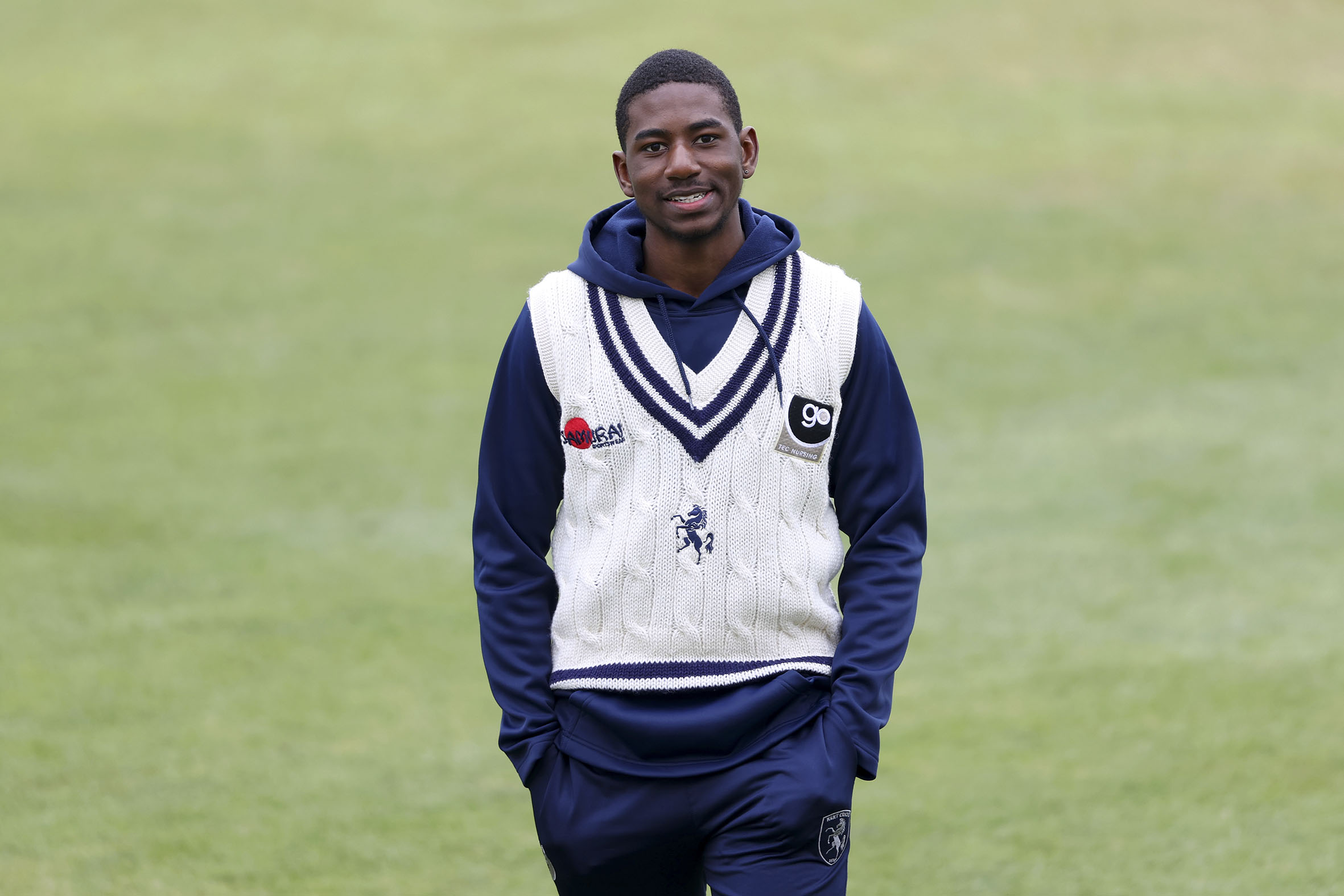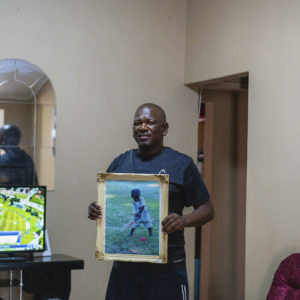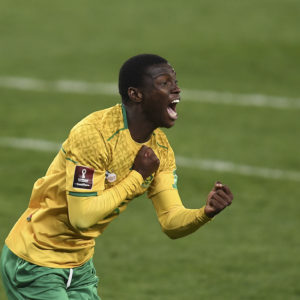Tawanda Muyeye’s England dream
The cricketer joined his mother in England shortly after she fled Zimbabwe to escape political persecution. While he still loves his native country, he has accepted that England is now home.
Author:
8 April 2022

Of the 26 African-born cricketers who have represented England across a combined 2 152 matches at the elite level, Basil d’Oliveira is a conspicuous outlier. The Cape Town native who scored 2 514 runs and took 50 wickets for his adopted country is the only member of this group who is not white. More importantly, what separates D’Oliveira from the rest is that playing for England offered him the opportunity to free himself from an oppressive regime.
His talents were honed in apartheid South Africa under a government that deemed his skin colour a crime. So, unlike Tony Greig who left Durban in 1966 at the age of 19, D’Oliveira was not merely pursuing a dream but fleeing a nightmare. And unlike Kevin Pietersen, who blamed Cricket South Africa’s selection targets based on race as a reason for his exodus, D’Oliveira had no other choice but to leave in order to realise his ambitions. No amount of hard work or luck would have seen him break into the South African team.
Fifty years after D’Oliveira played the last of his 48 games for England, a young Zimbabwean without a Plan B is looking to walk a similar path.
“It’s my dream to play for England,” says Tawanda Muyeye, a dashing top-order batter at Kent County Cricket Club who could not play for Zimbabwe even if he wanted to. “That door is closed. I love the country. I’ll always be Zimbabwean in my heart, even if I play for England. But it’s not safe there for me and my family. I don’t feel comfortable even being there right now.”
Related article:
Born in Harare, Muyeye was raised in a house of privilege. His father is a successful accountant and could afford the roughly R220 000 a year needed to send him to Peterhouse Boys’ School, the alma mater of Springbok legend Tendai Mtawarira and England cricketer Gary Ballance. It was in this bubble that Muyeye developed his love for sport, flourishing with a bat in hand and starring for the first XV in rugby as a flyhalf. But, in the background, simmering tensions could not be ignored.
“I was aware that things weren’t as good for other people in the country,” says Muyeye, who was born in 2001, a year characterised by rampant civil unrest, farm seizures sanctioned by Robert Mugabe’s ruling ZANU-PF, and political killings, including 23 prominent members of the opposition party, the Movement for Democratic Change (MDC).
“There was a year, I think it was 2008, when we couldn’t buy bread in the shops but it wasn’t a crisis for us. We went to South Africa and bought a bread-making machine. I didn’t really consider that there were probably many families who couldn’t do this. I was young. I was occupied with my own world. It’s only later that you realise how good you had it.”
Playing amid the oblivion
Muyeye’s mother, though, was mindful of her government’s pitfalls and sought to play her role in bringing about change. She was an active member of the MDC and would attend rallies and protests. But her actions caught the attention of those who would do her harm and, when Muyeye was 14, she left for England with barely a warning.
“I had no idea why she was suddenly gone,” Muyeye remembers, his voice measured throughout as he recounts this troubling time. “It was so abrupt. My dad knew what was going but he wouldn’t say. We [Muyeye has an older brother and a younger sister] were all away at school so I guess they thought they could just let it slide.
“I was so angry. It was weird. My dad was deliberately vague about it all. I was angry for a while. It was only two years later that I knew the full story. My mom effectively was a refugee and had obtained asylum in England. She was scared, always looking over her shoulder. She had to leave for her safety.”
Related article:
Rather than fixate on events beyond his control, Muyeye immersed himself in his sport. He represented Zimbabwe in both rugby and cricket at Under-16 level. “I thought I’d actually be a rugby player,” he says. But, in his final school year, his cricket took over when he scored three hundreds in six T20 innings at a national tournament and was selected to the national Under-19 camp.
But with his mother and sister living so far away, he wrote to three elite schools in England asking for a scholarship. He sent them videos of his batting as well as a list of his recent scores. Not shy of hiding his failures, he was sure not to skip any of the ducks or single digit contributions.
Of the three schools he contacted, the 155-year-old Eastbourne College in the south of England responded positively. But Muyeye struggled at first. He soon learned that privilege is a relative concept. For the first time in his life, he felt insecure about his upbringing and where he came from.
“It was humbling,” he says of those first months in his new school. “I was poor by comparison. I’m not crying poverty, I know that I still went to an elite school and I never wanted for anything. I felt small compared to the other guys. I’d only hang with privileged kids growing up. It was humbling knowing there is always someone with more money.”
‘What am I?’
Muyeye downplays the significance of this moral lesson on his cricket trajectory and, watching him bat, it is hard not to imagine he would have earned a professional contract either way. In 2019 he was recognised as the best school cricketer in the country as a consequence of his 1 112 runs at an average of 69.5, and not because of his politics. But that sense of displacement did instil in him a strong urge to use whatever platform the sport would offer him to speak out against injustices in the world.
His Twitter feed – which he now avidly avoids in order to rid himself of the “toxic energy” on social media – calls for a “Free Zimbabwe”. On it he also condemns gender-based violence and has earned a reputation in the Kent dressing room for bringing up race and class in the team discourse.
“I used to take my cricket so seriously but I now know that there are more important things going on in the world,” he says. “It’s just a game. I’m competitive and I want to win, but it’s just a game. Talking about these other things actually helps me play better. It clears my head.”
However, his mother served as a visceral reminder that outspoken views can bring unwanted consequences. And when he last visited his father back in Zimbabwe in December 2019, Muyeye couldn’t help but glance over his shoulder wherever he went.
Related article:
“I felt uncomfortable the whole time,” he said. “That’s when I decided to follow my mom and seek asylum.”
Last year he was granted an indefinite right to remain in the country. He says he is “forever grateful” to England and will qualify to wear the Three Lions in 2027. He’ll be 26 then.
“There are days when I have an identity crisis,” he admits. “Last year, during lockdown, I asked myself, ‘What am I?’ I wasn’t sure how to answer that question. It was heavy. I wasn’t sure if I could call myself Zimbabwean anymore. It’s a weird feeling.
“It would be easier if I didn’t love the country. My mom often says she’s confused by my love for Zimbabwe when the country has brought us so much pain. But I actively try to keep those roots strong. We speak Shona at home and with my family back in Zim. My mom still cooks sadza and she makes an excellent oxtail. My aunt sends over these mint sweets called Piccadilly. When I eat them I can pretend I’m still completely Zimbabwean.”
Related article:
Muyeye has hope for his country but does not expect he’ll ever return – not permanently at least, and certainly not to play for the national team. He used to set himself goals and would fight against the current if he wasn’t achieving them in a timely manner. Now he lets himself drift without resistance, allowing life’s waters to carry him downstream.
He’s written out his New Year’s resolutions and stuck them on his wall in his bedroom. He’s divided them into two categories. Beyond the boundary he wants to, “move on, stay in the moment and be kind to myself. Learn about the stock market, read at least six books, make new friends and not force things”. Out in the middle he intends to “stay positive and smile, give 100% every day and be myself, whether I score a duck or a hundred”.
His stunning stroke-play has received plaudits from England stars Pietersen, Jos Buttler and Jofra Archer. His school coach boasted that he could be the “best player in the world”. None of that raises so much as an excited gasp from a young man who has placed cricket and all its absurdities in its proper context. And if this laissez faire approach continues to translate into impressive knocks, then he’ll certainly follow D’Oliveira into English folklore.




